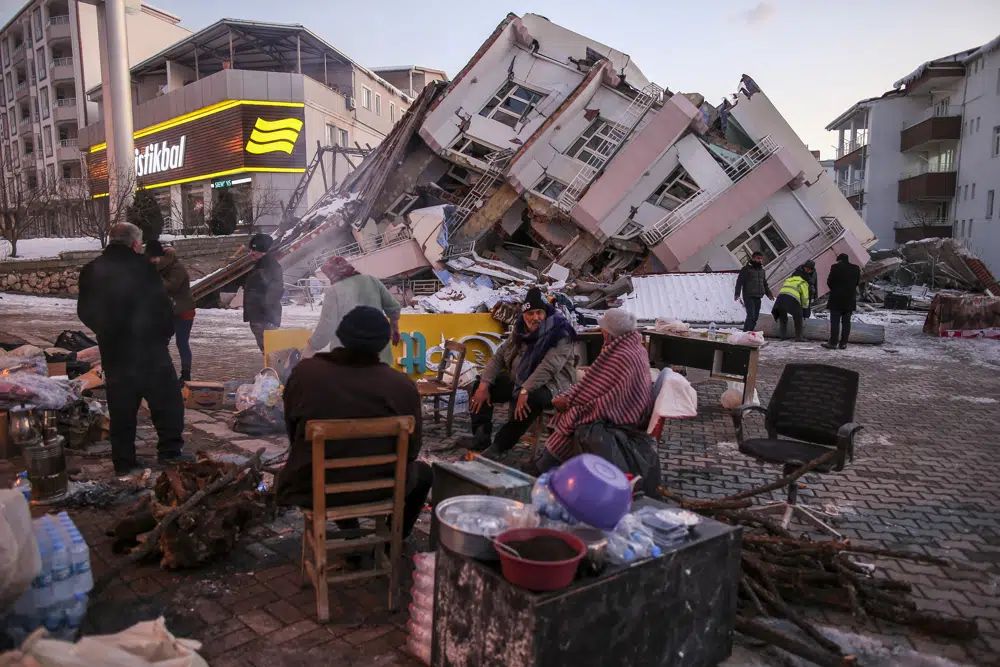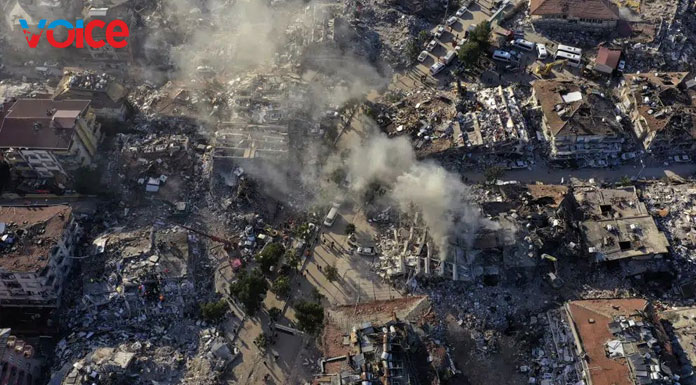Turkey has for years tempted fate by not enforcing modern construction codes while allowing — and in some cases, encouraging — a real estate boom in earthquake-prone areas, experts say.
The lax enforcement, which experts in geology and engineering have long warned about, is gaining renewed scrutiny in the aftermath of this week’s devastating earthquakes, which flattened thousands of buildings and killed more than 20,000 people across Turkey and Syria.
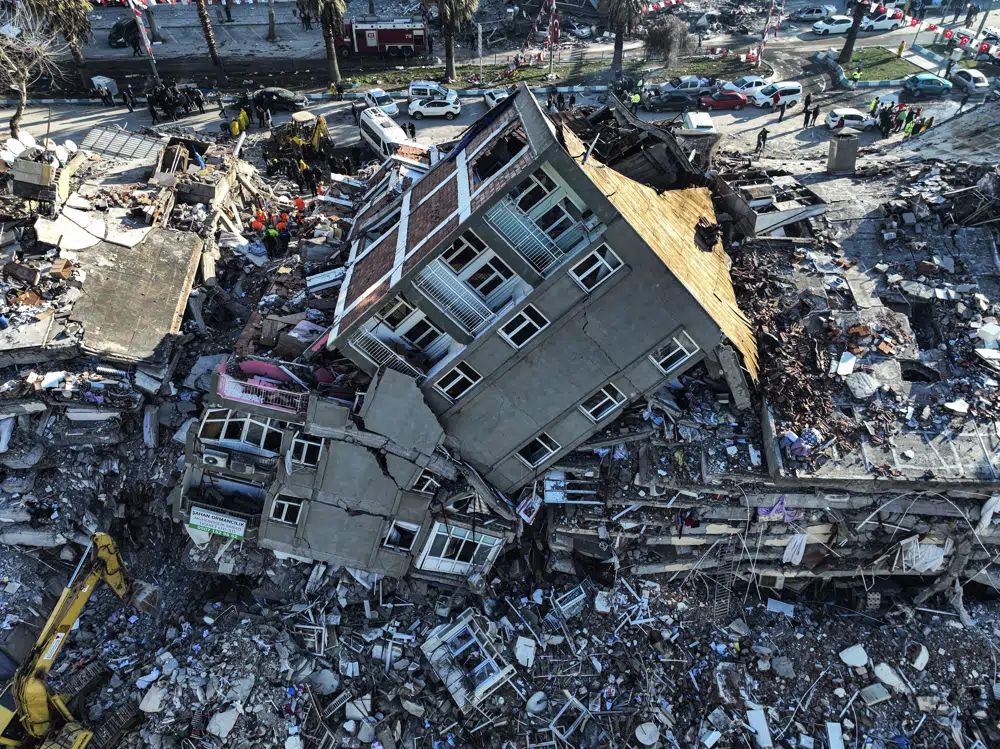
“This is a disaster caused by shoddy construction, not by an earthquake,” said David Alexander, a professor of emergency planning at University College London.
It is common knowledge that many buildings in the areas pummeled by this week’s two massive earthquakes were built with inferior materials and methods, and often did not comply with government standards, said Eyup Muhcu, president of the Chamber of Architects of Turkey.
He said that includes many old buildings, but also apartments erected in recent years — nearly two decades after the country brought its building codes up to modern standards. “The building stock in the area was weak and not sturdy, despite the reality of earthquakes,” Muhcu said.
The problem was largely ignored, experts said, because addressing it would be expensive, unpopular and restrain a key engine of the country’s economic growth.
Experts said there is a mountain of evidence — and rubble — pointing to a harsh reality about what made the quakes so deadly: Even though Turkey has, on paper, construction codes that meet current earthquake-engineering standards, they are too rarely enforced, explaining why thousands of buildings crumbled.
In a country crisscrossed by geological fault lines, people are on edge about when and where the next earthquake might hit — particularly in Istanbul, a city of more than 15 million that is vulnerable to quakes.
In 2021, the Chamber of Geological Engineers of Turkey published a series of reports raising red flags about existing buildings and new construction taking place in areas leveled by this week’s quakes, including Kahramanmaras, Hatay and Osmaniye. The Chamber urged the government to conduct studies to ensure that buildings were up to code and built on safe locations.
A year earlier, the Chamber issued a report that directly called out policies of “slum amnesty, construction amnesty” as dangerous and warned that “indifference to disaster safety culture” would lead to preventable deaths.
Since 1999, when two powerful earthquakes hit northwest Turkey, near Istanbul — the stronger one killing some 18,000 people — building codes have been tightened and a process of urban renewal has been underway.
But the upgrades aren’t happening fast enough, especially in poorer cities.
Builders commonly use lower quality materials, hire fewer professionals to oversee projects and don’t adhere to various regulations as a way of keeping costs down, according to Muhcu, president of the country’s Chamber of Architects.
He said the Turkish government’s so-called “construction peace” introduced before the 2018 general elections as a way to secure votes has, in effect, legalized unsafe buildings.
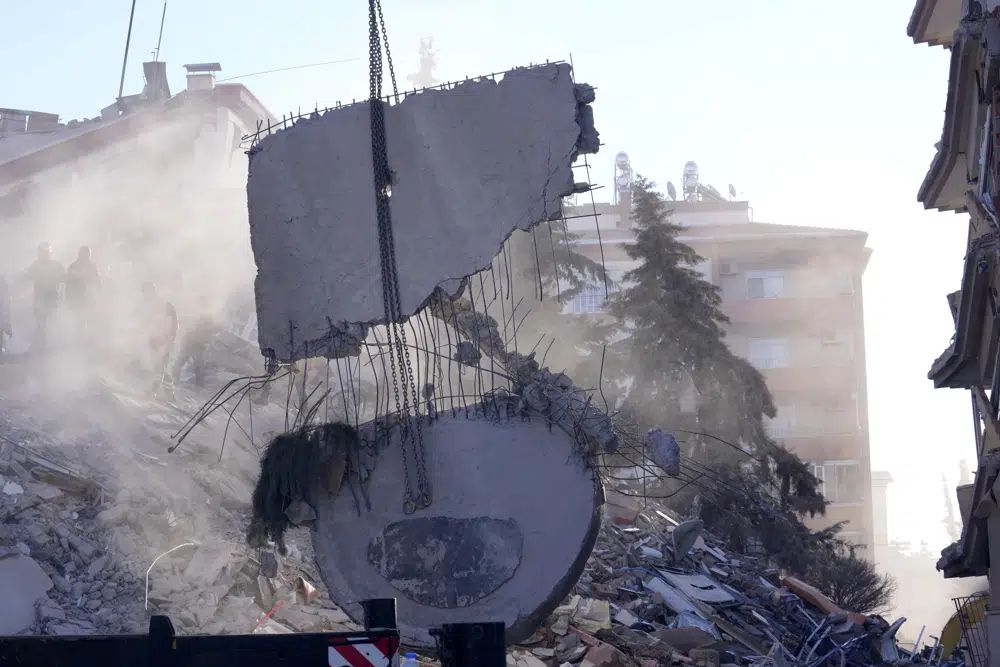
“We are paying for it with thousands of deaths, the destruction of thousands of buildings, economic losses,” Muhcu said.
Even new apartment buildings advertised as safe were ravaged by the quake.
In Hatay province, where casualties were highest and an airport runway and two public hospitals were destroyed, survivor Bestami Coskuner said he saw many new buildings, even “flashy” new ones had collapsed.
In Antakya, a historic city in Hatay, a 12-story building with 250 units that was completed in 2013 collapsed, leaving an untold number dead, or still trapped alive. The Ronesans Residence was considered one of the “luxury” buildings in the area, according to Turkish media reports, and it was advertised as “a piece of heaven” on social media.
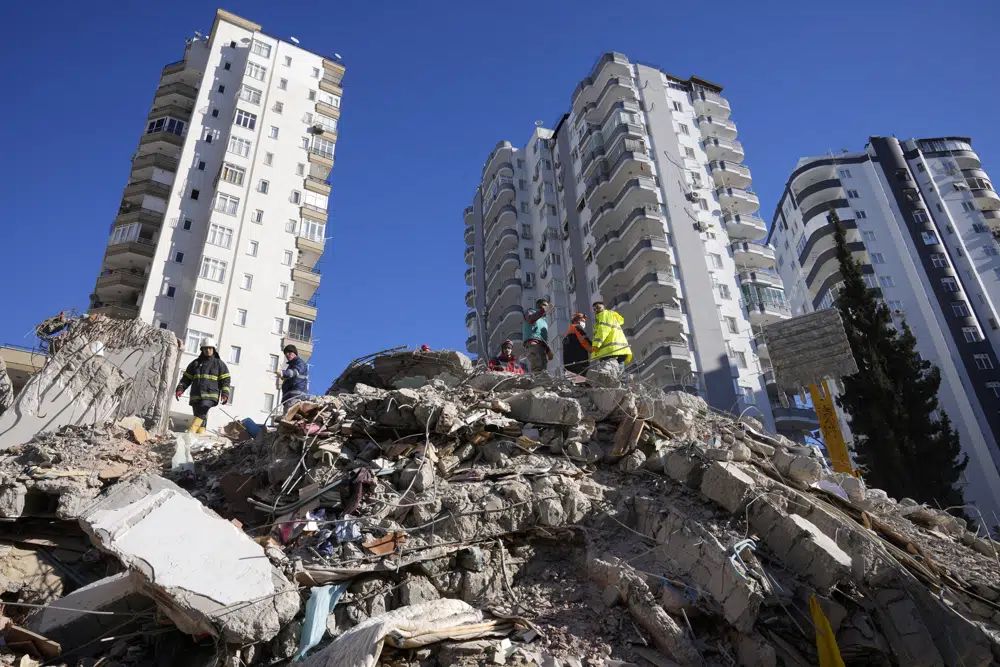
Another destroyed building in Antakya is the Guclu Bahce, which began construction in 2017 and opened with much fanfare in 2019 in a ceremony attended by Hatay’s mayor and other local officials, according to fact-checking website Dogrulukpayi.
In Malatya, the brand-new Asur apartments — billed as earthquake-proof in advertisements — sustained damage in the first quake, but residents escaped unharmed. Some residents who returned to the building to collect belongings managed a second lucky escape when the second strong temblor hit, causing the building to slide toward one side, according to video shown on TikTok and verified by fact-checking website Teyit.
The devastation across Turkey comes at a sensitive time for President Erdogan, who faces tough parliamentary and presidential elections in May amid an economic downturn and high inflation.
Erdogan regularly touts the country’s construction boom over the past two decades, including new airports, roads, bridges and hospitals, as proof of his success during more than two decades in power.
On his tour of the devastation Wednesday and Thursday, Erdogan pledged to rebuild destroyed homes within the year.
“We know how to do this business,” he said. “We are a government that has proved itself on these issues. We will.”
(Source AP)
